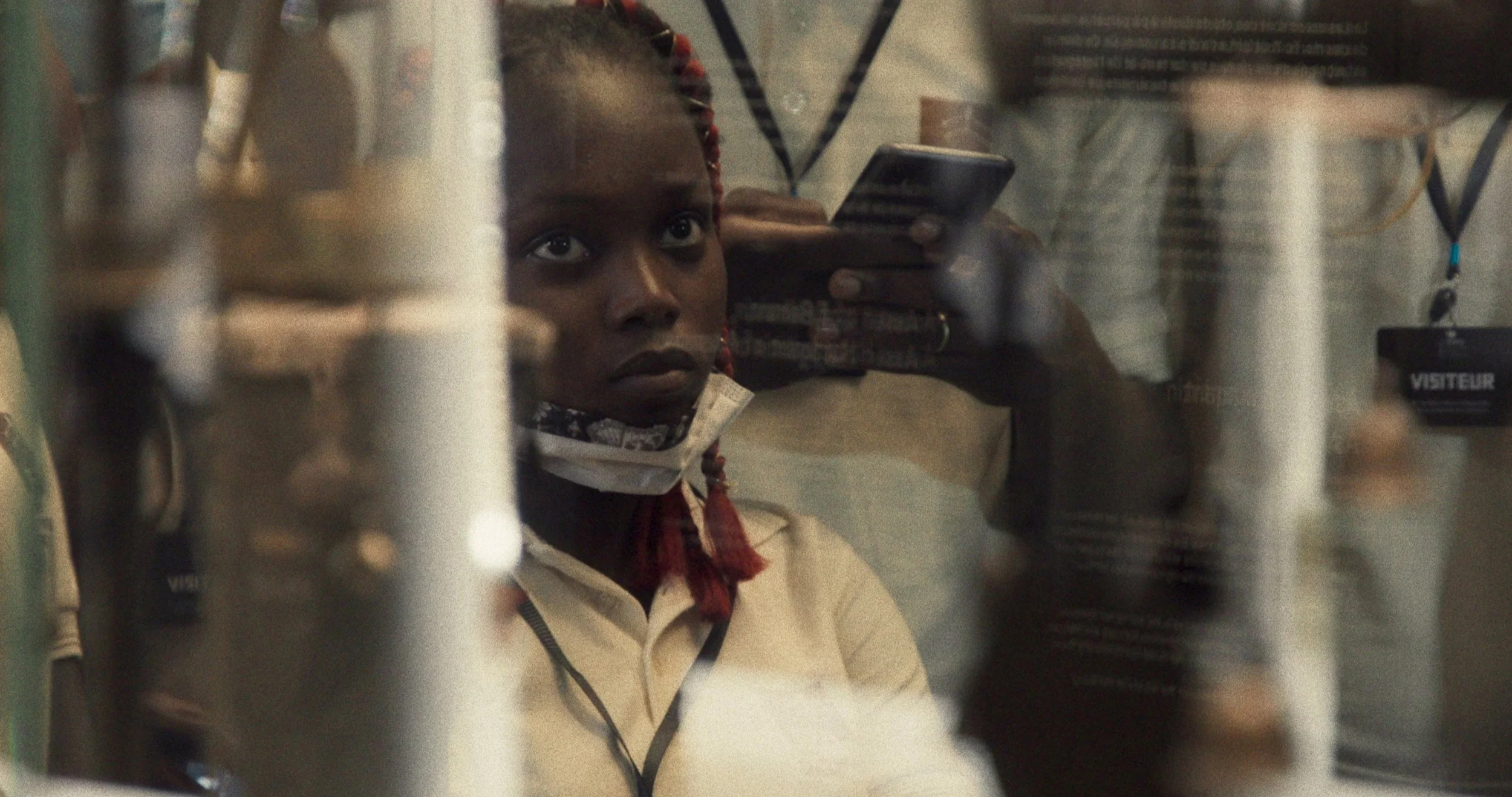Dahomey | 2024
A scene from Mati Diop’s DAHOMEY, courtesy of MUBI.
Long lost works of art from the West African kingdom of Dahomey make their way home after being plundered by French colonizers in Mati Diop's quietly extraordinary documentary, Dahomey. Following 26 historical artifacts as they journey from French museums back to their homeland in modern day Benin, Dahomey explores the surprisingly complex politics behind this historic transfer through the eyes of those facilitating their arrival, concerned citizens of Benin, and even the artifacts themselves.
At once a celebration of pre-colonial art and an examination of colonialisms ravages of Benin's national identity, Diop's film observes as citizens debate the merits of the return a step forward for their future by embracing their past, or an insult by a colonial nation saving face by reluctantly relinquishing power. It's a thorny and incisive exploration of colonialism and African self-determination that finds something almost mystical in the return of these artifacts, which it treats with a sense of both reverence and suspicion. Those debates make up the heart of Dahomey, allowing the citizens of Benin to take hold of their own futures and the uncomfortable ramifications of colonialism's effects on their collective culture, and what place these artifacts have, or don't have, in a new post-colonial nation. There's one particular shot that stuck with me, as a group of black Africans struggle to carry one of the heavy artifacts up a steep staircase, while several white men supervise and offer the occasional encouragement; even in such a moment of supposed goodwill - the specter of colonialism still looms like a shadow.
Diop, who is the niece of the great Senegalese filmmaker, Djibril Diop Mambéty (Touki Bouki), mixes verité-style documentary with the magical realist elements present in her debut feature, Atlantics (2018), in a way that is completely mesmerizing, not only giving voice to the people but to the art, using the "narration" of piece #26 to reach back and examine an almost cosmic connection with the past and the ancestors who first gave it life. It feels like a clash between tradition and modernity, longing to embrace the past while charting an uncertain path into a brave new world unencumbered by what came before.
It's a haunting, haunted film. Diop continues to be an electrifying cinematic force, following in her uncle's iconoclastic footsteps by interrogating French colonialism in Africa, while broadening her reach into an almost mystical examination of its effects on the human soul. Her voice is wholly and often dazzlingly her own, and even at a mere 68 minutes, Dahomey reaches deep into the unsettled soul of a generation seeking not only justice for the past, but a chance to create a future in their own image.
